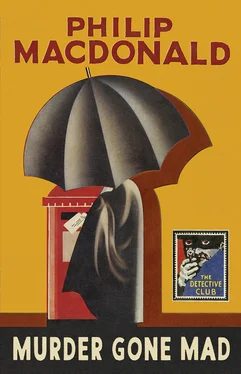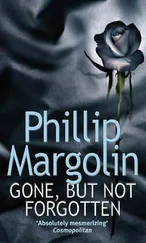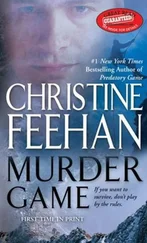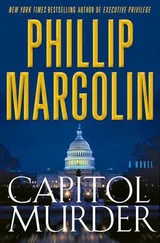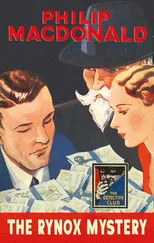‘The other side,’ said Mr Harvey, ‘of what?’
‘The railway, of course,’ said Mr Colby. ‘You see, the idea is to have what you might call an industrial quarter one side of the railway and a—well—a superior residential quarter on this side of the railway. Very good notion, don’t you think, ol’ man?’
‘Splendid!’ said Mr Harvey.
‘Round here. Round here,’ Mr Colby, with increasing jocularity, swung Mr Harvey to his left. They entered the dark and box-hedged mouth of what seemed to be a narrow passage. They came out after ten yards of this into a small rectangle. So far as Mr Harvey was able to see, this rectangle was composed of small and uniform houses all ‘attached’ and all looking out upon a lawn dotted with raised flower beds. Round the lawn were small white posts having a small white chain swung between them. All the square ground-floor windows showed pinkly glowing lights. Mr Harvey wondered for a moment whether all the housewives of The Keep—he knew his friend’s address to be No. 4, The Keep—had chosen their curtains together.
‘Here we are! Here we are! Here we are!’ said Mr Colby in a sudden orgy of exuberance. He had stopped before a small and crimson door over which hung by a bracket a very shiny brass lantern. He released the arm of Mr Harvey and fumbled for his key chain, but before the keys were out the small red door opened.
‘Come in, do!’ said Mrs Colby. ‘You must both be starved!’
They came in. The small hall was suddenly packed with human bodies.
‘This,’ said Mr Colby looking at his wife and somehow edging clear, ‘is Mr Harvey. Harvey, this is Mrs Colby.’
‘Very pleased,’ said Mr Harvey, ‘to meet you.’
‘So am I, I’m sure,’ said Mrs Colby. She was a plump and pleasant and bustling little person who yet gave an impression of placidity. Her age might have been anywhere between twenty-eight and forty. She was pretty and had been prettier. She stood looking from her husband to her husband’s friend and back again.
Mr Colby, whose christian name was George, was forty-five years of age, five feet five and a half inches in height, forty-one and a half inches round the belly and weighed approximately ten stone and seven pounds. He had pleasing and kindly blue eyes, a good forehead and a moustache which seemed, although really it was not out of hand, too big for his face.
Mr Harvey was forty years old, six feet two inches in height, thirty inches round the chest and weighed, stripped, nine stone and eleven pounds. Mr Harvey was clean-shaven. He was also bald. His face, at first sight rather a stern, harsh, hatchet-like face, was furrowed with a myopic frown and two deep-graven lines running from the base of his nose to the corners of his mouth. When Mr Harvey smiled, however, which was quite frequently, one saw, as just now Mrs Colby had seen, that he was a man as pleasant and even milder natured than his host.
‘This,’ said Mr Colby throwing open the second door in the right-hand wall, ‘is the sitting-room. Come in, Harvey, ol’ man.’
Mr Harvey squeezed his narrowness first past his hostess and then his host.
‘You coming in, dear?’ said Mr Colby.
His wife shook her head. ‘Not just now, father. I must help Rose with the supper.’
‘Where’s the boy?’ said Mr Colby.
‘Upstairs,’ said the boy’s mother, ‘finishing his home lessons. It’s the Boys’ Club Meeting after supper and he wants to get the work done first.’
‘If we might,’ said Mr Colby with something of an air, ‘have a couple of glasses …’
Mrs Colby bustled away. Mr Colby went into the sitting-room with his friend. Mr Colby impressively opened a cupboard in the bottom of the writing desk and took from the cupboard a black bottle and a syphon of soda water. Mrs Colby entered with a tray upon which were two tumblers. She set the tray down upon the side table. She raised the forefinger of her right hand; shook it once in the direction of her husband and once, a little less roguishly, at Mr Harvey.
‘You men!’ said Mrs Colby.
Mr Colby and his guest lay back in their chairs, their feet stretched before the fire. In each man’s hand was a tumbler. They were very comfortable, a little pompous and entirely happy. To them, when the glasses were nearly empty, entered Master Lionel Colby; a boy of eleven years, well-built and holding himself well; a boy with an engaging round face and slightly mischievous, wondering blue eyes which looked straight into the eyes of anyone to whom he spoke. Lionel obviously combined in his person, and also probably in his mind, the best qualities of his parents. He shook hands politely with Mr Harvey. He reported, with some camaraderie but equal politeness, his day’s doings to his father.
‘Homework done?’ said Mr Colby.
Lionel shook his head. ‘Not quite all, daddy. I came down because mother told me to come and say how-do-you-do to Mr Harvey.’
Mr Colby surveyed his son with pride. ‘Better run up and finish it, son. Then come down again. What are you going to do at the Boys’ Club tonight?’
The round cheeks of Lionel flushed slightly. Lionel’s blue eyes glistened. ‘Boxing,’ said Lionel.
The door closed gently behind Lionel.
‘That,’ said Mr Harvey with genuine feeling, ‘is a fine boy, Colby!’
Mr Colby made those stammering, slightly throaty noises which are the middle-class Englishman’s way when praised for some quality or property of his own.
‘A fine boy!’ said Mr Harvey again.
‘A good enough lad,’ said Mr Colby. His tone was almost offensively casual. ‘Did I happen to tell you, Harvey, that he was top of his class for the last three terms and that the headmaster, Dr Farrow, told me himself that Lionel is one of the best scholars he’d had in the last twenty years? Not, mind you, Harvey, that he isn’t good at games. He’s captain of the second eleven and they tell me he’s going to be a very good boxer. I must say—although it isn’t really for me to say it—that a better, quieter, more loving lad it’d be difficult to find in the length and breadth of Holmdale.’
‘A fine boy!’ said Mr Harvey once more.
At nine o’clock in the Trumpington Hall, Master Lionel Colby had the immense satisfaction of having proved himself so immeasurably superior to his opponent, a boy three years older and a full stone heavier than himself, that Sergeant Stubbs had stopped the bout.
‘I only wish,’ said Lionel to himself, ‘that dad and mum had been there.’ ‘I’m sorry,’ said Lionel aloud to his cronies, with a self-condemnatory swagger quite delicious, ‘I didn’t realise I was hitting so hard.’
At nine o’clock in the Holmdale Theatre—a building so modern in conception, so efficient in arrangement, and so pleasantly strange in decoration that earnest Germans made special trips to England to see it—the curtain was going down upon the first act of the Yeomen of the Guard as performed by the Holmdale Mummers. With supers, the cast of the Yeomen of the Guard , as performed by the Holmdale Mummers, amounted to seventy-four. There were in the theatre somewhere between two hundred and fifty and three hundred people, two hundred and twenty-two of whom were relatives of the cast.
At nine o’clock in the library of The Hospice, which was the large house of Sir Montague Flushing, K.B.E., the chairman of the Holmdale Company Limited, Sir Montague himself, was concluding a small and informal speech to those six of his fellow directors who had, that night, dined with him. Sir Montague was saying:
‘… and so I think that we may, gentlemen, very fairly congratulate ourselves upon drawing near to the conclusion of a very successful year. It is true that this year, as in the past, we have been unable to pay any dividend upon Ordinary Shares. It is also true that we have had to mortgage a thousand acres of building land on the Collingwood site, but, in opposition to these two facts, we have the increased and ever increasing influx of citizens. We have the success of our ( a ), ( b ) and ( d ) building schemes and we have the satisfaction of knowing that before many more months are out we shall be a fully self-contained borough with an Urban District Council of its own.
Читать дальше
